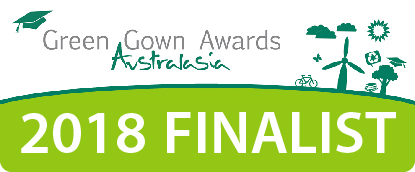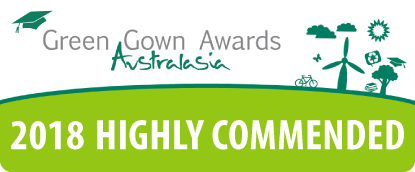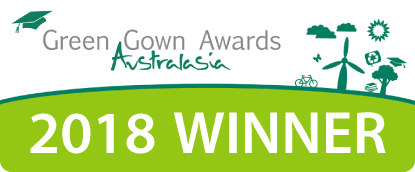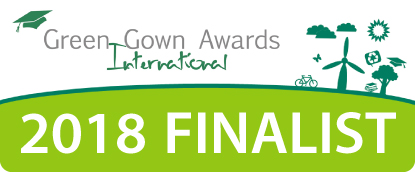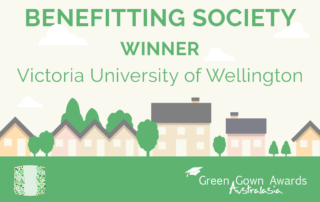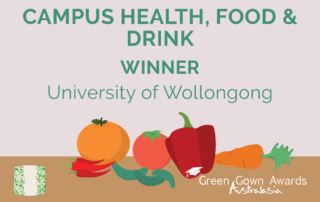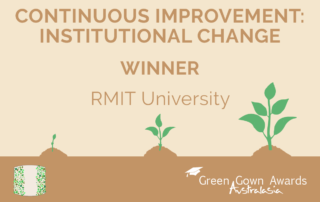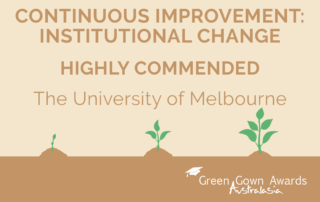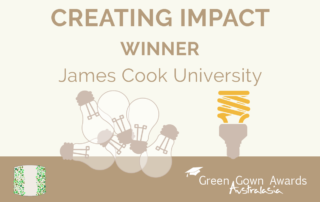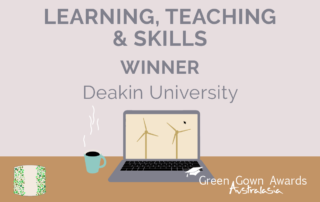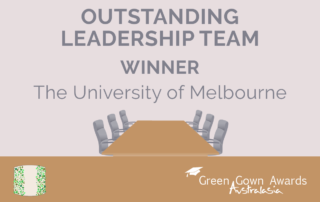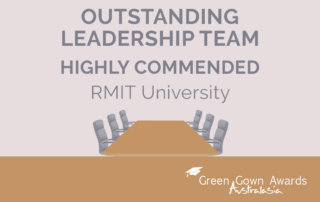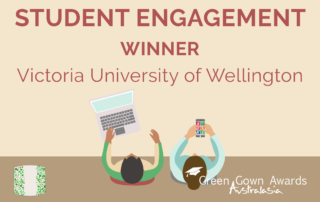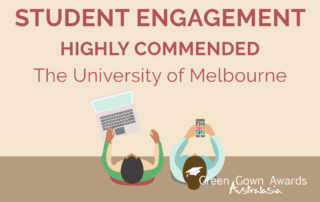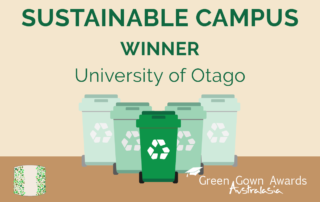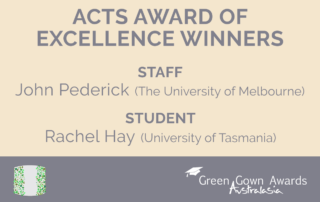2018
Thursday 1 November
National Wine Centre, Adelaide, South Australia
33 finalists from 19 institutions
10 winners representing 8 institutions
Benefitting Society
W I N N E R
Community connections impact change – why the Victoria Plus Programme drives the difference
Making the most of the university experience often requires students to step outside their comfort zone, affect change and connect to their community. Since 2008 hundreds of students have opted into Victoria University’s extra-curricular Victoria Plus Programme to do just that. We designed a flexible, inclusive and wide-ranging extra-curricular service and leadership programme to encourage students to get involved, help others and hone their skills. Achieving an award in recognition of volunteering and civic engagement is valuable but even more is the students’ sense of purpose and willingness to continue their involvement well into future life and career.
This Award recognises more than a decade of commitment to extracurricular service and leadership at Victoria University of Wellington through the Victoria Plus programme. VicPlus exemplifies our University’s commitment to civic engagement, providing opportunities for our students’ work to benefit society and for students to enhance their employability.
Top 3 learnings
Campus Health, Food & Drink
W I N N E R
Setting the Bar
After a ‘bin trim’ audit identified that 55% of the waste generated from UniBar was going to landfill, UOW Pulse knew drastic improvements were needed. An overhaul of the bar’s operations and food and beverage offering was undertaken to reduce the environmental impact of the business resulting in an 84% reduction in waste sent to landfill.
Key components of the project included investing in waste separation stations, a Pulpmaster machine to process organic packaging and food waste; the removal of non-recyclable packaging from operations and replacing with recyclable and compostable alternatives; and introducing an extensive vegan food offering to reduce carbon footprint.
The University of Wollongong is honoured to be recognised as an industry leader in the sustainable delivery of campus services. This award celebrates the dedication and contribution of the UOW Pulse food and beverage team in bringing about positive, sustainable change to business operations and creates opportunities to share our learnings and successes within the tertiary education and hospitality sectors.
Top 3 learnings
Continuous Improvement – Institutional Change
W I N N E R
Ready for Life and Work – an evolution of sustainability at RMIT
2017 marked the 130-year anniversary of the founding of RMIT University, this provided a great opportunity to reflect on the transformational impact we have had on our students, staff and community both then and now.
RMIT understands that sustainability is key to ensuring this legacy not only survives but thrives into the future. With this in mind, it is important to recognise that the University has not only worked for the past ten years to embed sustainability throughout its operations but has revelled in creating impact through practical and meaningful change.
The past three years detailed in this submission, guided by the latest Strategic Plan ‘Ready for Life and Work’, outlines how RMIT has delivered on its sustainable infrastructure commitment, developed more meaningful sustainability activities to engage its community and provided genuine support to embrace its diverse and dynamic population of staff and students.
RMIT is proud to be the recipient of a Green Gown Award for Continuous Improvement Institutional Change. This category of award is unique in recognising a whole of institution approach to sustainability and is an acknowledgement that striving for the best sustainable outcomes and practices is, and always will be, integral to RMIT.
Top 3 learnings
H I G H L Y C O M M E N D E D
Sustainability @ Melbourne
The University of Melbourne, already a global leader in research and teaching excellence, is committed to embedding sustainability into everything we do. From 2015 the University community has built upon the existing foundations for further significant institutional change in the form of a strategic Framework comprising a Sustainability Charter, Plan and Report. This is world-leading for a tertiary education institution because it has made commitments, set targets and is delivering results across all UoM activities – Research, Teaching & Learning, Engagement and Operations and Governance. UoM has demonstrated itself to be a premier example of whole of institutional change towards a more resilient and sustainable future.
Top 3 learnings
Creating Impact
W I N N E R
TropEco: Creating a Culture of Sustainability at JCU
JCU’s TropEco program has been embedding a culture of sustainability at JCU for the past 7 years, implementing on-going, high-profile successful initiatives and empowering staff and students for sustainable outcomes.
Student and staff engagement is a key focus of the program, with two encompassing programs empowering students and staff to achieve sustainable outcomes.
The student TropEco Interns program has seen over 150 students complete internships since its inception in 2014, working on projects across broad disciplines including; biodiversity, energy, water, waste management, transport, student and staff engagement, governance, business development art, community gardens and ICT.
The Sustainable Office Accreditation Program has engaged over 500 staff since 2016 to implement sustainable activities through a structured accreditation program.
James Cook University is proudly committed to the UN Sustainable Development Goals. By empowering our students and staff to engage in sustainability, JCU’s TropEco program genuinely reflects this commitment. Winning this Green Gown Award is a celebration of the outstanding success of the JCU community towards achieving our SDG aspirations.
Top 3 learnings
Learning, Teaching & Skills
W I N N E R
Bringing about a cultural shift for meaningfully integrating sustainability across mainstream curricula in Deakin Business School
Senior executive, academic and professional staff across portfolios at Deakin Business School are collaborating to integrate scaffolded development and assessment of sustainability capability across all our programs. Sustainability has become a major consideration in our strategic plan and major curriculum enhancement initiatives to improve graduate employability. More than 150 core unit chairs have reflected upon practical strategies for enhancing sustainability integration in their units. Through innovative projects with industry engagement, our students are engaging the wider community with sustainability issues. Our innovative approaches have been recognised for excellence locally, nationally and internationally.
Our Business School is promoting sustainability in action by strengthening the nexus between graduate employability and sustainability capability. Winning this Green Gown Award celebrates Deakin’s commitment to engage our students, staff, industry partners and the wider community in advancing the UN’s sustainable development goals.
Top 3 learnings
Outstanding Leadership Team
W I N N E R
Sustainability Executive
From mid-2015 to early 2017, the University of Melbourne community built the foundations for institutional change in the form of a strategic Framework comprising a Sustainability Charter, Plan and Report. The Framework is world-leading for a tertiary institution because it makes commitments and sets targets across all University activities – Research, Teaching & Learning, Engagement, Operations and Governance.
The process to develop the framework, led by the Sustainability Executive and Chancellery team, has been powerful in fostering wide-reaching buy-in, uniting faculties and individuals across the institution. The Sustainability Executive, chaired by the CFO, was set-up to monitor the development and implementation of the Framework, with members drawn from Chancellery, University Services, academia and students.
H I G H L Y C O M M E N D E D
RMIT Sustainability Committee
RMIT University has a long-standing commitment to incorporating sustainability into its core activities of teaching, research and operations. The RMIT Sustainability Committee was formed in 2009 and provides the leadership, coordination and guidance to the University for integration of sustainable principles and practices. The membership is broadly based across the whole University including all three academic colleges, learning and teaching development, research, student life and students.
In 2018 the RMIT Sustainability Committee highlights have been the development and implementation of the University’s responsible investment principles and the University commitment to become carbon neutral by 2030.
Additional to this the Sustainability Committee has funded a position to support the coordination of University research towards the sustainable development goals (SDGs) and a Fair Trade Coordinator to support the University’s longstanding commitment as a Fair Trade University.
The Committee also continues to drive the observance of all external sustainability commitments and reporting under the Global Reporting Initiative frameworks.
Student Engagement
W I N N E R
VUW Sustainability Week: Learn to Live Sustainably
In May, students at Victoria University of Wellington hosted the university’s first ever ‘Sustainability Week’ of environmental action and events. Campus was abuzz with thirteen events, daily action station activities, eco-giveaways, an art competition, a dedicated ‘Sustainability Special’ of our student magazine and opportunities galore to learn about today’s most pressing environmental issues and take action. The result was incredible student engagement, with over 1,000 people attending events and more than 30,000 reached via Facebook. The organising committee, comprised of six student clubs, has since established a formal Sustainability Committee within our Student Association to work on long-term sustainability initiatives.
This Green Gown Award is well-deserved recognition for the Victoria University community. Victoria is a leader in this area—our staff and students have embraced the concept of sustainability and continue to work hard to make our University a truly sustainable institution.
Top 3 learnings
H I G H L Y C O M M E N D E D
Fair Food Challenge
Fair Food Challenge is a student-run initiative at the University of Melbourne with an aim to transform the campus food environment to a more healthy, fair, equitable and sustainable system. The Challenge runs a series of projects such as community kitchens, a serving ware re-use service, a portable bike kitchen, community lunches, food waste workshops and free fruit boxes in the library. As well the team conducts research, facilitates community feedback and empowers students to participate in university policy decisions that shape the future of the institution.
Top 3 learnings
Sustainable Campus
W I N N E R
Zeroing in on zero carbon
We are living our goal of being a good global citizen by sparking a change that will cut our total carbon footprint by a third by 2020 and propel our main Dunedin campus more than halfway towards being zero carbon. We saw a 20% drop in tCO2-e from our single largest source of emissions in five months, by initiating the transition from coal to wood at the district scheme that supplies steam and heat to our Dunedin campus.
We are elated with this award, which not only highlights the value of our sustainability work but propels us and our city along our sustainability journey. We all have a part to play in sustainability and this demonstrates the integrity of our commitment so will encourage more people to get involved.
Top 3 learnings
ACTS Award of Excellence – Staff
W I N N E R
John Pederick
John is currently the Facilities and Operations Manager, Faculty of Science at the University of Melbourne (UoM). John has been a sustainability champion and driver for change across the university for many years.
He has strived to reduce waste and be sustainable in all aspects of his day to day activities, primarily by re-using recycled furniture and products, by reusing as much of the existing infrastructure on campus or ensuring it is available for recycling. He also tries to take a more inclusive approach and considers the broader sustainability activities, including water use and energy efficiency, by thinking about the consequences and impacts of projects and renovations on the environment, on people and our community. John strives to get involvement and buy-in from all the ‘clients’ – academics, professional staff and students. He is particularly motivated to enable student ideas and student involvement in sustainable improvements – as they are the leaders of the future.
ACTS Award of Excellence – Student
W I N N E R
Rachel Hay
My main goal is to facilitate communication of the collective student voice on sustainability to multiple levels of the University. To deliver this outcome, I organised a series of engagement events to connect students passionate about sustainability, and understand and communicate students’ views on how their university could be more sustainable, with carbon neutrality being a major point. To communicate this vision (through speeches, statements, petitions and discussion), I organised the ‘Student Perspectives: A Carbon Neutral UTAS’ forum in 2017 and invited the Vice-Chancellor (VC), who listened to the student voice and announced at the event that UTAS would become certified carbon neutral that year. I have also represented the student voice as the Fossil Free UTAS observer on the Sustainability Committee, supported the Sustainability Team to draft the new Strategic Framework for Sustainability and as a SIPS Fellow have investigated the feasibility of a UTAS bike share program.


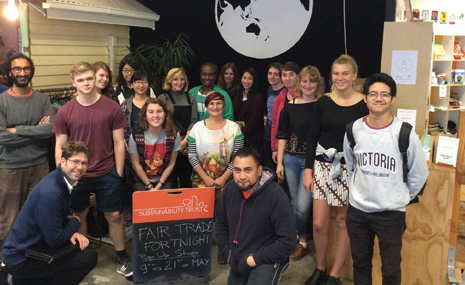
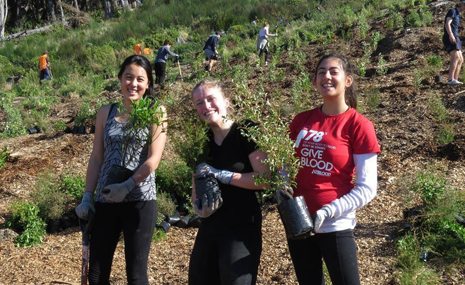
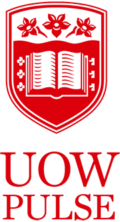
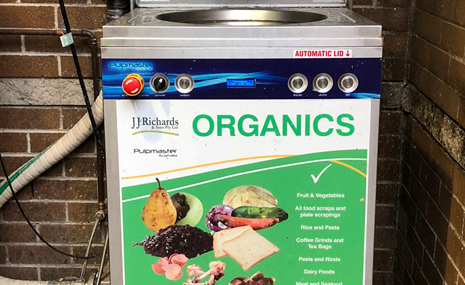

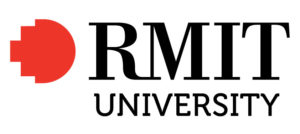

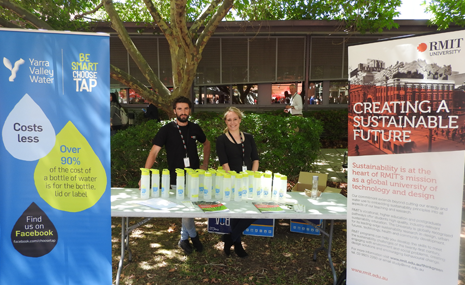
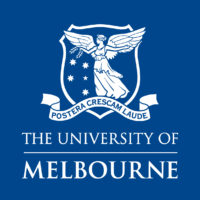
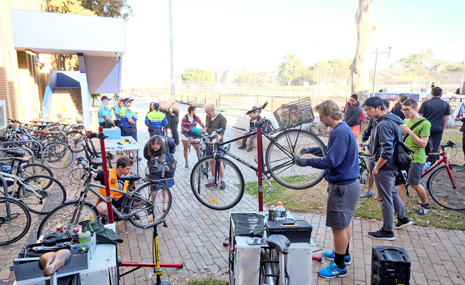
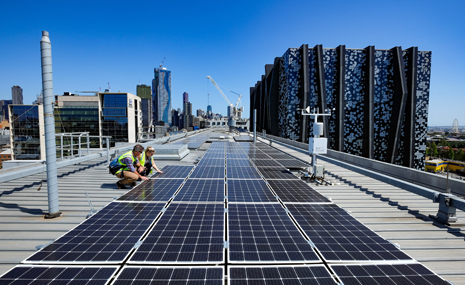
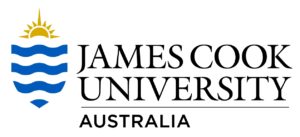
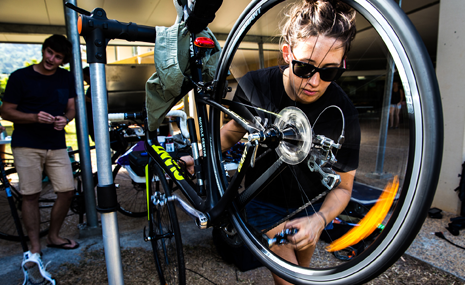
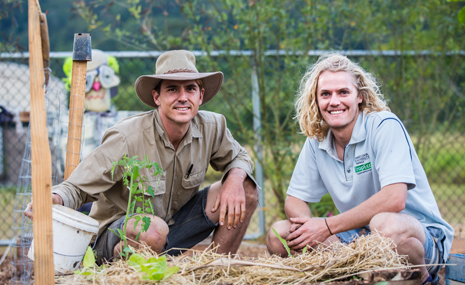
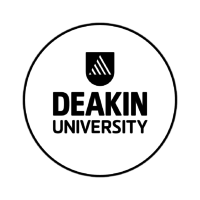
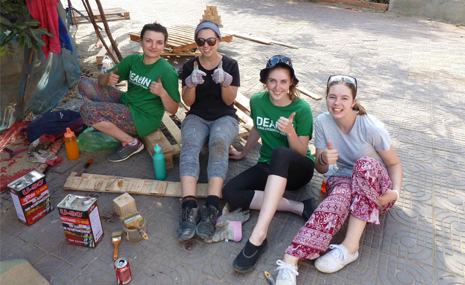
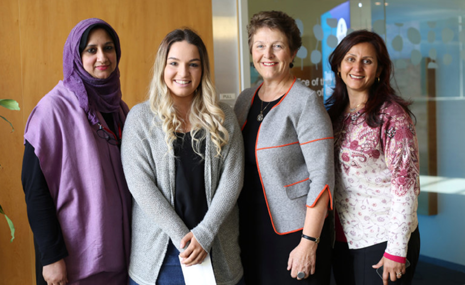
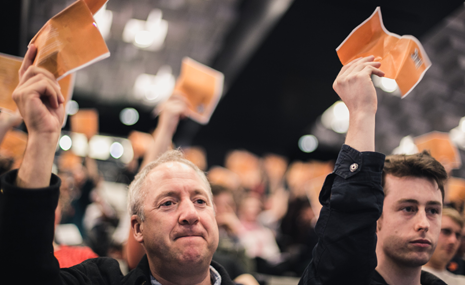
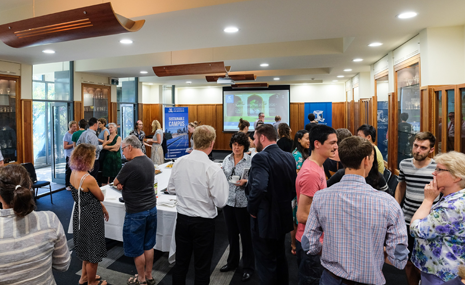
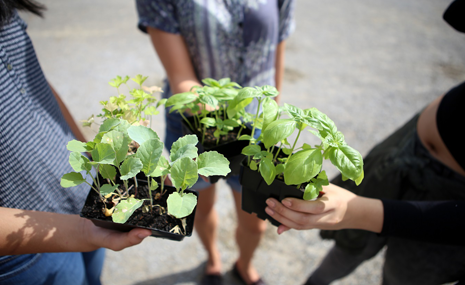
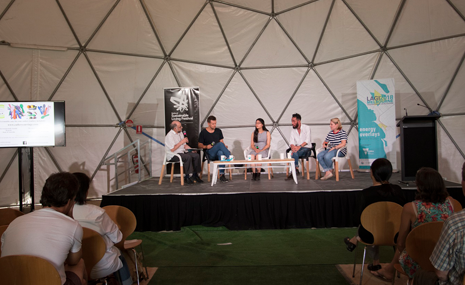
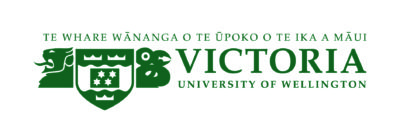
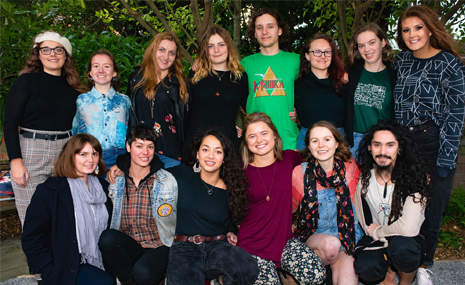



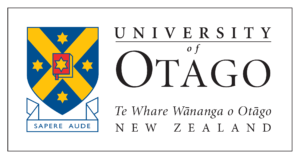

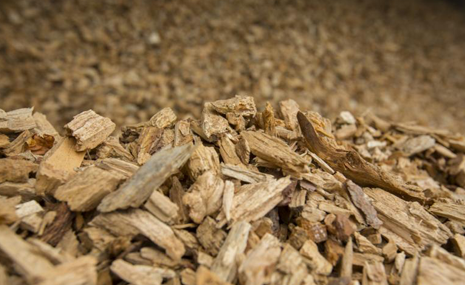
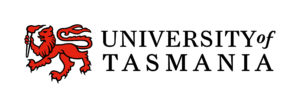
![GRAPHIC: GGAA Generic [Centered]](https://ggaa.acts.asn.au/wp-content/uploads/sites/4/2018/05/2016GGAA_Generic-promo-Centered.jpg)
